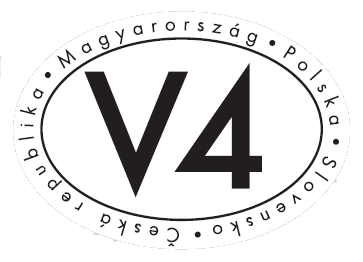Project Publications
| Book 1 | Book 2 | Book 3 | Book 4 | Book 5 | Book 6 | conference articles in journals |
Chapter 8:
Glinka, B. (2014). Strategies of Development of Polish Immigrant Entrepreneurs in the USA In: Knezevic, B. & Wach, K. (eds), International Business from the Central European Perspective. Zagreb: University of Zagreb Publishing Service.
Full text: pdf
Abstract:
Objective: The main goal of the entire project was
to examine entrepreneurial activity of Polish immigrants in the USA.
This article addresses one of research questions formulated in the
project, i.e: what are the major strategies of development applied by
Polish immigrant entrepreneurs. Additionally, selected factors shaping
development strategies will be pointed out. The population of US
citizens with Polish roots is significant: 9,5 millions (3% of
population) of Americans reveal their Polish origin (U.S.CB, 2010);
moreover, 3,3% of American business owners declare Polish ancestry.
Polish immigrants in the USA has been studied by researchers before, but
their entrepreneurial activity did not attract sufficient attention.
Research Design & Methods: As the field is not well
described, qualitative methodology was employed to study entrepreneurial
activity of Polish immigrants in the USA. Ethnographic study, conducted
in 2011 – 2012, consisted of over 40 interviews with immigrants (1st and
2nd generation) operating in different industries and in different parts
of the USA. Additionally, observations, analysis of documents, analysis
of immigrant press as well as analysis of survey data were used.
Grounded theory approach was used to analyze collected data.
Findings: The strategies of development of different
groups of Polish immigrant entrepreneurs, as well as factors influencing
them were presented in a text. Co-existence of different business models
and different approaches to development is discussed. Some trends in
entrepreneurial activity of immigrants has been identified.
Contribution & Added Value: The article offers an
in-depth analysis of immigrant business development strategies that goes
beyond the stereotypical images of immigrants as grocery store or ethnic
restaurant owners. The deeper understanding of diversified
entrepreneurial activity of the population of Polish immigrants is
offered that may have both theoretical (e.g. knowledge about immigrant
entrepreneurship, base for further research and international
comparisons) and practical significance (e.g. policy design, stimulating
economic cooperation with immigrants).
Kewords:
entrepreneurship, immigrant entrepreneurship, entrepreneurial strategies
References:
ADDIN EN.REFLIST BONACICH, E. 1993. Asian and Latino immigrants in the Los Angeles garment industry: an exploration of the relationship between capitalism and racial oppression. In: LIGHT, I. & BHACHU, P. (eds.) Immigration and entrepreneurship. Culture, capital and ethnic networks. New Brunswick, USA & London, UK: Transaction Publishers.
BRUTON, G. D., AHLSTROM, D. & LI, H.-L. 2010. Institutional Theory and Entrepreneurship: Where Are We Now and Where Do We Need to Move in the Future? Entrepreneurship Theory and Practice, 3, 421 - 440.
CASTLES, S. & MILLER, M. J. 2011. Migracje we współczesnym świecie, Warszawa, Wydawnictwo Naukowe PWN.
CHARMAZ, K. 2006. Constructing Grounded Theory. A Practical Guide through Qualitative Analysis London, SAGE.
COMAROFF, J. L. & COMAROFF, J. 2011. Etniczność sp. z o.o., Kraków, Wydawnictwo Uniwersytetu Jagiellońskiego.
CZARNIAWSKA-JOERGES, B. 1992. Exploring Complex Organizations: A cultural perspective., Newbury Park-London-New Delhi, SAGE.
GLASER, B. G. & STRAUSS, A. L. 1967. The Discovery of Grounded Theory: Strategies for Qualitative Research., Hawthorne, NY, Aldine De Gruyter.
GLINKA, B. 2013. Przedsiębiorczość polskich imigrantów w USA: etnicznie, lokalnie, globalnie?, Warszawa, Poltext.
HENSEL, P. & GLINKA, B. 2012. Teoria ugruntowana. In: JEMIELNIAK, D. (ed.) Badania Jakościowe. Podejścia i teorie. Warszawa: PWN.
HJORTH, D. & STEYAERT, C. (eds.) 2004 Narrative and Discursive Approaches in Entrepreneurship, Cheltenham: Edward Elgar.
JENNINGS, P. L., PERREN, L. & CARTER, S. 2005. Alternative Perspectives on Entrepreneurship Research. entrepreneurship Theory and Practice, 29, 145-152.
KLOOSTERMAN, R. 2010. Matching Opportunities with Resources: A Framework for Analysing (Migrant) Entrepreneurship from a Mixed Embeddedness Perspective. Entrepreneurship and Regional Development, 22, 25-45.
KLOOSTERMAN, R. & RATH, J. 2001. Immigrant entrepreneurs in advanced economies: mixed embeddedness further explored. Journal of Ethnic amd Migration Studies, 27, 189-201.
MOROKVASIC, M. 1993. Immigrants in Garment production in Paris and in Berlin. In: LIGHT, I. & BHACHU, P. (eds.) Immigration and entrepreneurship. Culture, capital and ethnic networks. New Brunswick, USA & London, UK: Transaction Publishers.
OLIVEIRA, C. R. 2007. Understanding the diversity of immigrant entrepreneurial strategies. In: DANA, L.-P. (ed.) Handbook of research on ethnic minoruty entrepreneurship. A Co-evolutionary view on resource management. Cheltenham, UK, Northampton, MA, USA: Edwarg Elgar.
ONG, A. 1992. Limits to sultural accumulation: Chinese capitalists on the American Pacific Rim. In: GLICK SCHILLER, N., BASCH, L. & BLANC-SZANTON, C. (eds.) Towards a transnational perspective on migration. Race, class, and nationalism reconsidered. New York: The New York Academy of Science.
RAE, D. 2002. Understanding Entrepreneurial Learning: A Question of How? International Journal of Entrepreneurial Behaviour and Research, 6, 145-159.
SAHIN, M., NIJKAMP, P. & BAYCAN-LEVENT, T. 2007. Migrant entrepreneurship from the perspective of cultural diversity. In: DANA, L.-P. (ed.) Handbook of research on ethnic minority antrepreneurship. Cheltenham, Uk, Northampton, MA USA: Edward Elgar.
SCOTT, W. R. 2008. Institutions and Organizations. Ideas and Interests., Los Angeles, London, New Delhi, Singapore, SAGE Publications.
U.S.CB. 2010. 2010 American Community Survey [Online]. U.S.Census Bureau. Available: http://www.census.gov/acs/www/ [Accessed 2.04.2013].
VOLERY, T. 2007. Ethnic entrepreneurship: a theoretical framework. In: DANA, L.-P. (ed.) Handbook of research on ethnic minority entrepreneurship. A co-evolutionary view on resource management. . Cheltenham, UK, Northampton, MA USA: Edward Elgar.
VORDERWULBECKE, A. 2013. Entrepreneurship and migration. In: XAVIER, S. R., KELLEY, D., KEW, J., HERRINGTON, M. & VORDERWULBECKE, A. (eds.) Global Entrepreneurship Monitor. 2012 Global report. Global Entrepreneurship Research Association (GERA).
WALDINGER, R., ALDRICH, H., WARD, R. & ASSOCIATES 1990. Ethnic entrepreneurs. Immigrant business in industrial societies, Newbury Park, London, New Delhi, SAGE publications.
WARREN, L. 2004. A Systemic Approach to Entrepreneurial Learning: An Exploration Using Storytelling. Systems Research and Behavioral Science, 21, 3-16.
XAVIER, S. R., KELLEY, D., KEW, J., HERRINGTON, M. & VORDERWULBECKE, A. 2013. Global Entrepreneurship Monitor. 2012 Global report. Global Entrepreneurship Research Association (GERA).
ZHOU, M. 1992. Chinatown: the socioeconomic potential of an urban nclave, Philadelphia, Temple University Press.
ZHOU, M. 2009. Contemporary Chinese America. Immigration, ethnicity, and community transformation, Philadelphia, Temple University Press.
Czech Republic
Hungary
Poland
Slovakia

Contact:
Dr hab. Krzysztof Wach
Cracow University of Economics
wachk@uek.krakow.pl
www.wach.uek.krakow.pl

